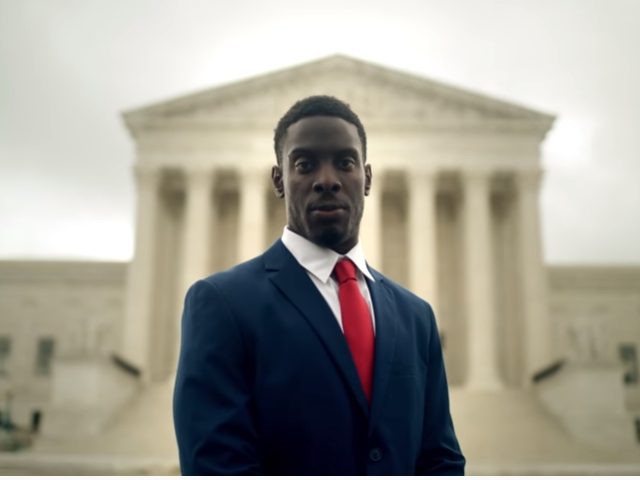The U.S. Supreme Court began hearing oral arguments Tuesday morning in a high-level free speech case involving a Christian student who was barred from sharing his faith on his college campus.
A convert to Christianity, Chike Uzuegbunam was peacefully sharing the gospel with fellow students on Georgia Gwinnett College campus in 2016 when campus police stopped him and told him he needed to make an advance reservation to speak in one of two tiny campus “speech zones” that were only open a few hours a week.
The young man obediently got his permit to speak and went to the school’s speech zone at the appointed time but campus police stopped him from speaking for a second time. The officials told him that someone had complained about Chike’s religious speech and then threatened disciplinary action if he should continue speaking about Jesus.
Chike and a second student sued Georgia Gwinnett College under the First Amendment seeking an end to the policy as well as nominal damages (Uzuegbunam v. Preczewski). Represented by Alliance Defending Freedom (ADF), they challenged the college’s policies as unconstitutional while the school argued that Chike’s speech deserved no constitutional protection. It later changed its policy but claimed it should be exempt from any penalty for violating Chike’s free speech rights.
The U.S. Court of Appeals for the 11th Circuit in Atlanta ruled that Uzuegbunam was moot, but Chike appealed to the high court, contending that nominal charges are important to pursuing civil rights claims and that changing policy can still result in denying one’s constitutional rights.
“Without nominal damages, universities and schools can violate students’ rights with impunity, without clarifying the law, and with the cover of qualified immunity,” lawyers told the court.
“The Court needs to make it clear that colleges cannot violate a student’s rights, then simply amend their unconstitutional policies after getting sued to avoid the consequences,” ADF noted in an article on its website. “These policies hurt real people. People like Chike. And we are grateful that the U.S. Supreme Court is willing to give him another chance at obtaining justice.”
The Supreme Court announced in July that it would hear Uzuegbunam v. Preczewski and began with oral arguments Tuesday.

COMMENTS
Please let us know if you're having issues with commenting.